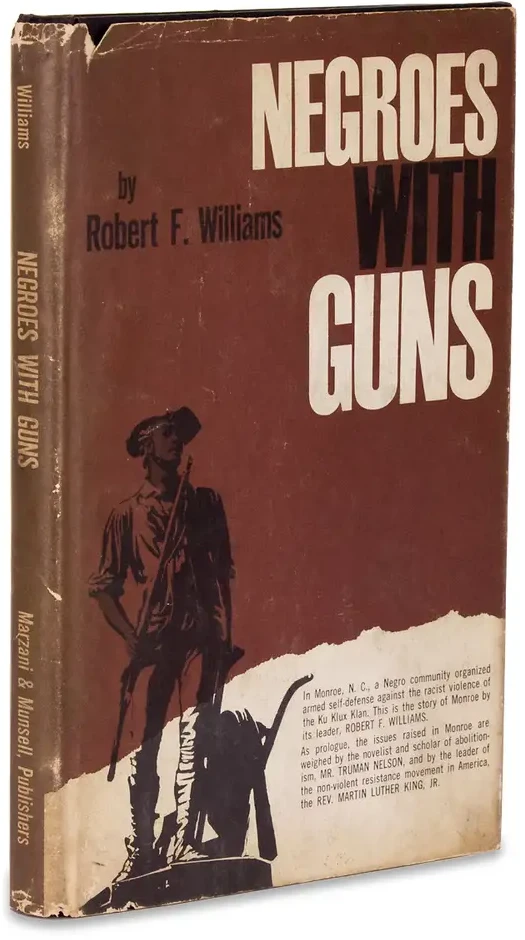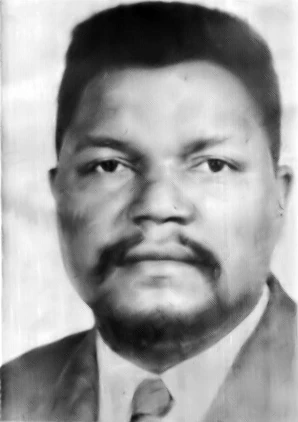Robert F. Williams
Biography
Robert Franklin Williams (February 26, 1925 – October 15, 1996) was an influential civil rights leader, author, and advocate of armed self-defense in the face of racial violence. Born in Monroe, North Carolina, Williams is best known for his leadership of the local NAACP chapter in the 1950s and early 1960s and for his radical stance on the right of Black Americans to defend themselves against white supremacist aggression.
Williams gained national attention in 1959 when he was suspended from the NAACP after publicly advocating for armed self-defense following a series of violent attacks on the Black community in Monroe. His position sharply contrasted with the mainstream civil rights movement’s emphasis on nonviolence, led by figures like Dr. Martin Luther King Jr. Nevertheless, his views found resonance among many African Americans who were disillusioned by the persistent violence they faced and the slow pace of change.
 In 1962, Williams published his seminal book, Negroes with Guns, which became a foundational text for the emerging Black Power movement. The book detailed his experiences in Monroe and argued that nonviolent protest must be accompanied by the right to self-defense. It would later inspire groups like the Black Panther Party.
In 1962, Williams published his seminal book, Negroes with Guns, which became a foundational text for the emerging Black Power movement. The book detailed his experiences in Monroe and argued that nonviolent protest must be accompanied by the right to self-defense. It would later inspire groups like the Black Panther Party.
After being falsely accused of kidnapping during a 1961 racial confrontation in Monroe, Williams fled the United States. He lived in exile for several years, spending time in Cuba, where he broadcast on Radio Free Dixie, and later in China, where he continued to write and speak out against racism and imperialism. While abroad, he published the newsletter The Crusader and worked to foster solidarity between African Americans and global revolutionary movements.
Williams returned to the U.S. in the early 1970s after the charges against him were dropped. He remained active in political and intellectual circles, contributing to discussions on Black liberation, internationalism, and resistance until his death in 1996.
Robert F. Williams’s legacy is that of a courageous and controversial figure who challenged the mainstream civil rights narrative, asserting that dignity and justice sometimes required more than peaceful protest. His life and writings continue to inspire debates about the limits of nonviolence and the role of armed resistance in the struggle for civil rights.



